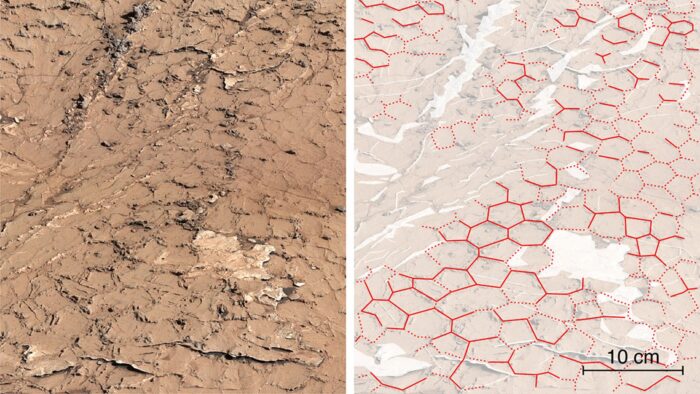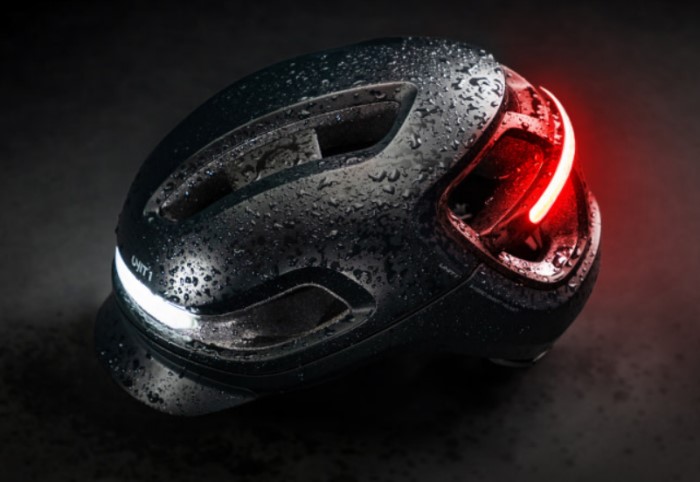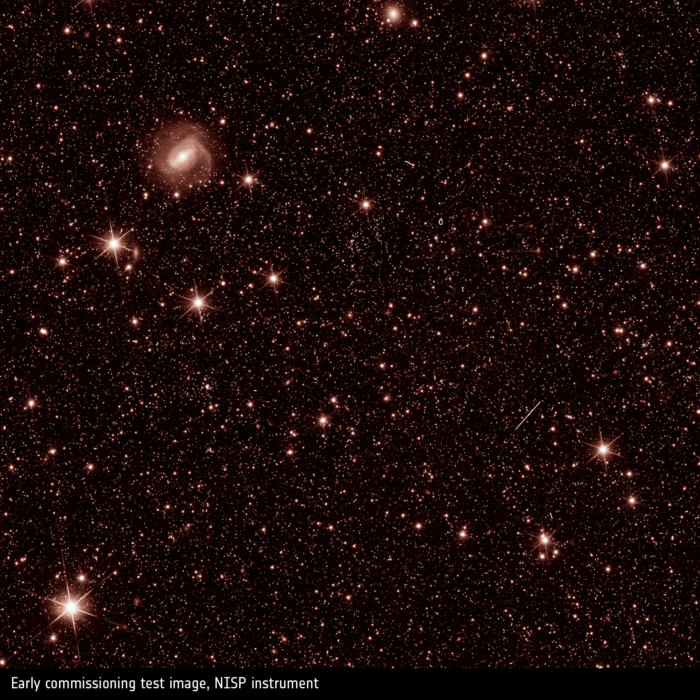May 1 to 16 is Science Odyssey, a celebration of all things science! OWLconnected is recognizing this two-week event with lots of science content, as well as with an amazing contest, presented by our friends at the Natural Sciences and Engineering Research Council of Canada (NSERC). Details are at the end of this post—be sure to enter!
And now, let's move into some science about pets!
In every sense of the word, cats are curious.
They are curious themselves, constantly climbing things and examining under couches and inside cupboards.
But their behaviour is also curious to us. Anyone who has spent time with cats has wondered why they make the choices that they do. Because cats don't come when called. They are picky. They make choices.
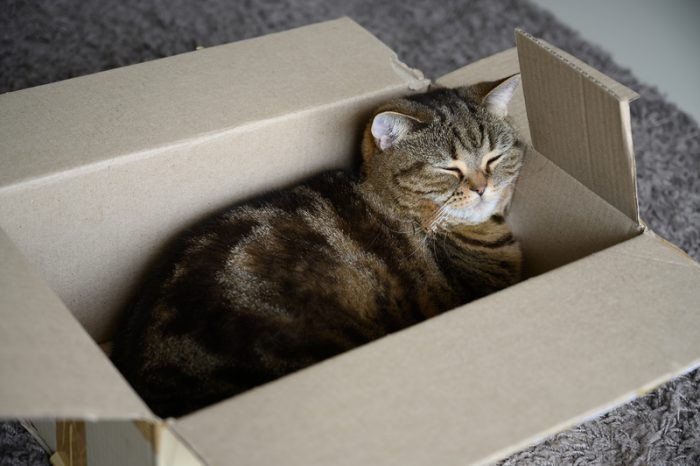
Purr-fect. (ID 149342632 © One Photo | Dreamstime.com)
And often that choice involves sitting inside a box. Leave an empty shipping box on the floor and cats will find it, hop inside, do a little circle, and plunk themselves in it. But will they also sit inside shapes that look like boxes?
That was the idea behind a new citizen science study (citizen science is science done by everyday people who aren't professional researchers). Led by Gabriella Smith of the City University of New York, 30 cat owners were recruited to run experiments on their cats' behaviour. Hey, it's the pandemic—what better time to observe your kitties!
Enter the Kanizsa square
To test this theory, the cat owners were asked to set up three different patterns on the floor for their felines.
- A taped square (called the square stimuli)
- An illusion of a square (made of four Pac-Man shapes and known as a Kanizsa square)
- A re-arrangement of Kanizsa shapes that didn't produce a square (called the control)
The cat owners then had to record their findings and avoid influencing their pets in any way.
Cats choose squares!
So would these cats choose to sit inside the shape of a square? Or even the illusion of a shape of a square? And would they decide to avoid the 'fake' square shape? Here's what the study said...
The cats in this study stood or sat in the Kanizsa and square stimuli more often than the Kanizsa control, revealing susceptibility to illusory contours and supporting our hypothesis that cats treat an illusory square as they do a real square.
In other words, they preferred the squares. The study's lead researcher was certainly happy...
So pleased to announce that my paper, "If I Fits I Sits: A Citizen Science Investigation into Illusory Contour Susceptibility in Domestic Cats (Felis silvestris catus) has just been published in AABS! #IfIFitsISits #CatSquare #CitizenScience #CommunityScience pic.twitter.com/AXbDttnOGC
— Gabriella Smith M.A. (@Explanimals) May 4, 2021
As for why cats do this, that's another question and more research is needed. It seems as though these animals just enjoy the 'feeling' of being enclosed. Even if that enclosure is only an illusion!
Of course, being animal lovers, we couldn't resist testing this theory out ourselves. Here's OWLconnected writer John's cat Violet choosing a paper towel square just this morning.
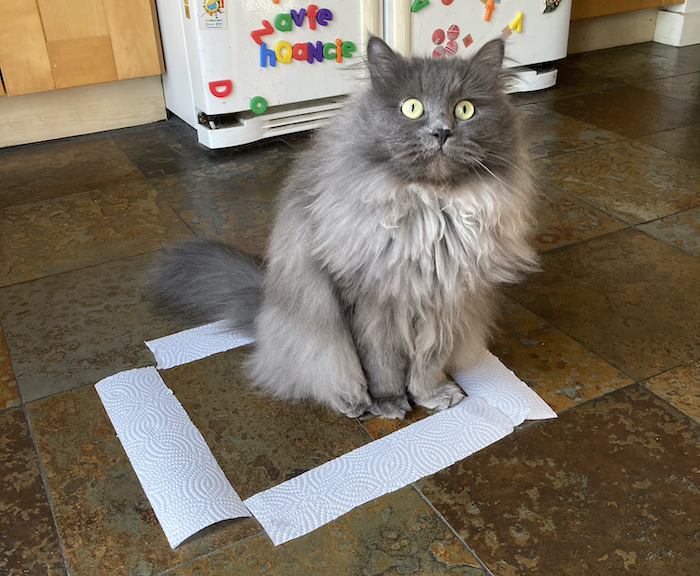
Violet approves! (John Crossingham)
Seems like this study checks out! If you have a kitty at home, why not give that funny feline a square test today? Have fun, citizen scientists!
Contest alert
Don't forget to enter the Science Odyssey Contest! Click HERE TO ENTER.

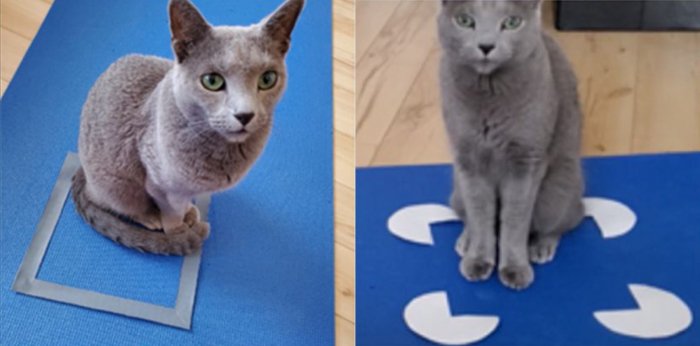 A new study tested whether or not cats would choose to sit in taped boxes or illusions known as Kanizsa squares. (Smith et al., Applied Animal Behaviour Science 2021)
A new study tested whether or not cats would choose to sit in taped boxes or illusions known as Kanizsa squares. (Smith et al., Applied Animal Behaviour Science 2021)





